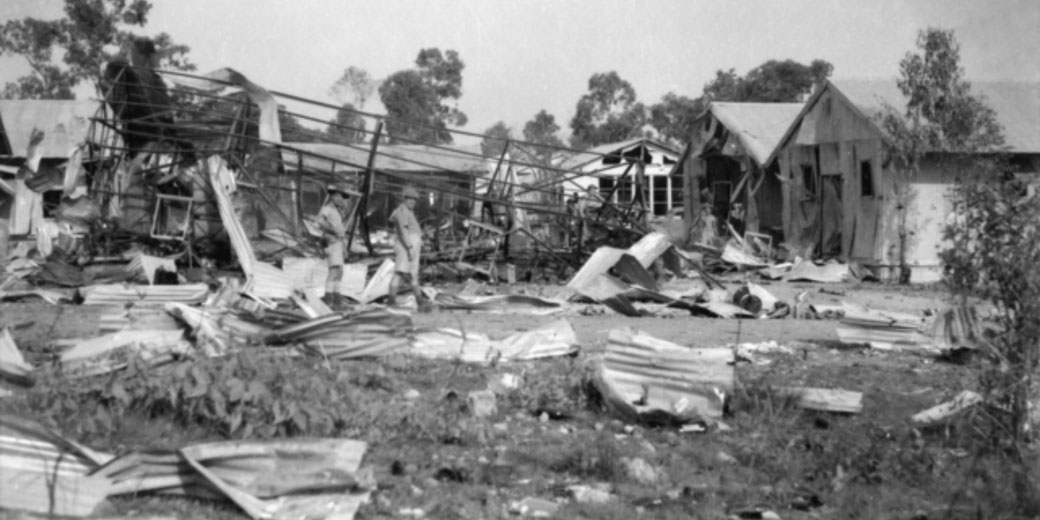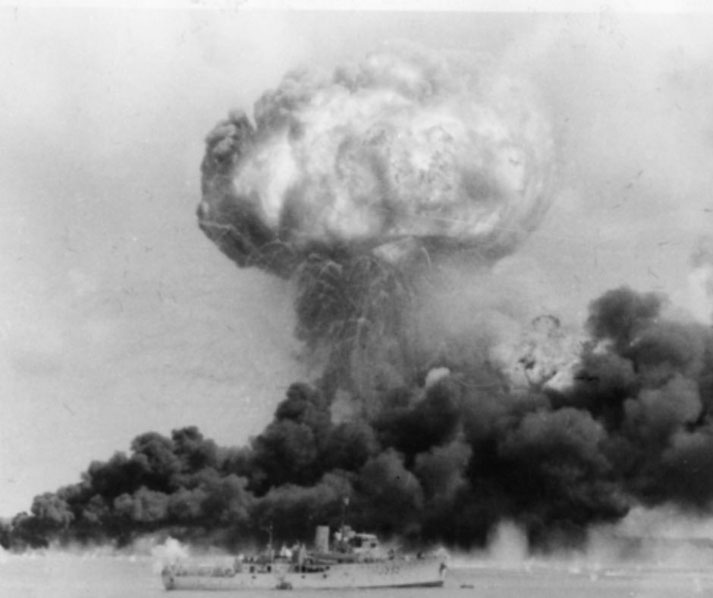Australia's Pearl Harbor: The devastating bombing of Darwin in WWII

The Bombing of Darwin, often referred to as Australia's Pearl Harbor, stands as one of the most significant events in the nation's history during World War II.
On the 19th of February, 1942, the tranquil city of Darwin, located in Australia's Northern Territory, was jolted into the harsh realities of war as Japanese forces launched a devastating air raid.
This marked the first and largest direct attack on Australian soil during the war, shaking nation's sense of security and forever changing its course in the global conflict.
How Australia became involved in WWII
In the years leading up to the Bombing of Darwin, the world was embroiled in the throes of World War II.
The conflict, which began in 1939, had rapidly spread across continents, with the Axis powers, led by Germany, Italy, and Japan, seeking to expand their territories.
Australia, as a member of the British Commonwealth, had already been involved in the war, primarily supporting the Allied forces in Europe and the Mediterranean.
However, the Pacific theatre of the war took a decisive turn following the Japanese attack on Pearl Harbor in December 1941.
This event marked the beginning of a series of aggressive expansions by the Japanese Empire across the Pacific, aiming to establish its Greater East Asia Co-Prosperity Sphere.
Australia, due to its strategic location, was inevitably drawn into this new phase of the war.
Darwin, in particular, held significant strategic importance. As the capital city of Australia's Northern Territory, it was the country's closest major city to the Pacific theatre.
Darwin's harbor was a crucial military base, housing naval ships and providing a key link for the resupply and reinforcement of Allied forces in Southeast Asia.
The city was also home to several airfields, making it a vital hub for air operations.
In the months leading up to the bombing, the threat of a Japanese attack had become increasingly apparent.
The fall of Singapore in February 1942, just days before the bombing, had left Darwin as the next logical target for the Japanese advance.
The attack on Darwin
On the morning of 19th February 1942, the relative calm of Darwin was shattered as Japanese forces launched a surprise air raid on the city.
The attack was led by the same Japanese commander who had orchestrated the attack on Pearl Harbor just over two months earlier, Admiral Isoroku Yamamoto.
The bombing was part of a broader strategy to neutralize Allied forces in the Pacific and secure Japan's newly conquered territories.
The first wave of the attack began around 9:58 AM, involving 188 Japanese aircraft launched from four aircraft carriers located in the Timor Sea.
The targets were the city's harbor, airfields, and the town itself. The raid caught the city largely unprepared, and the damage was extensive.
Ships were sunk, infrastructure was destroyed, and many lives were lost in the initial onslaught.
A second wave followed shortly after, involving 54 land-based bombers that targeted the Royal Australian Air Force base.
The combined attacks lasted for about 40 minutes, but the devastation they caused was immense.

How much damage was caused in the attack?
The city, which had been a bustling hub of military activity, was left in ruins. The harbor, once filled with naval vessels, was now a graveyard of sunken ships.
Eight of the ten ships anchored there were either sunk or severely damaged. The city's infrastructure, including the post office, railway station, and numerous commercial and residential buildings, were destroyed or severely damaged.
The human toll was equally tragic. Officially, 243 people were killed in the attack, but the actual number is believed to be much higher, as the chaos of the event made accurate record-keeping nearly impossible.
Hundreds more were injured, and thousands were left homeless. The psychological impact on the survivors was profound, with many suffering from shock and trauma in the aftermath of the attack.
The damage extended beyond the physical destruction. The bombing disrupted communication lines, making it difficult for the news of the attack to reach the rest of the country and the world.
This led to a sense of isolation and fear among the residents of Darwin, who felt they had been left to face the enemy alone.
The economic impact was also significant. Darwin's role as a key military and supply hub was severely compromised, affecting the Allied war effort in the Pacific.
The city's civilian economy was virtually destroyed, with many businesses either damaged or forced to close.
How did Australia respond?
The scale of the attack and the extent of the damage overwhelmed the city's limited resources.
Emergency services, including medical personnel, firefighters, and civil defense workers, were stretched to their limits as they worked to rescue survivors, treat the injured, and contain the fires that raged across the city.
The Australian military, caught off guard by the scale of the attack, quickly mobilized to defend the city and its vital installations.
Despite suffering heavy losses, they managed to launch a counterattack, shooting down several Japanese aircraft.
In the days and weeks that followed, Darwin's defenses were significantly bolstered, with additional troops, anti-aircraft guns, and fighter aircraft being deployed to the city.
On a national level, the bombing had a profound impact on Australia's war strategy.
The government, under the leadership of Prime Minister John Curtin, recognized the need for a more robust defense policy.
This led to a greater focus on home defense and the strengthening of Australia's military capabilities.
The bombing also underscored the importance of Australia's alliance with the United States, which would play a crucial role in the Pacific War.
In the long-term aftermath, the city of Darwin underwent a slow and difficult process of recovery.
The physical scars of the bombing took years to heal, with many buildings and infrastructure needing to be rebuilt.
The psychological impact on the survivors and the community was long-lasting, with the memory of the bombing shaping the city's identity in the years to come.
What do you need help with?
Download ready-to-use digital learning resources
Copyright © History Skills 2014-2025.
Contact via email
With the exception of links to external sites, some historical sources and extracts from specific publications, all content on this website is copyrighted by History Skills. This content may not be copied, republished or redistributed without written permission from the website creator. Please use the Contact page to obtain relevant permission.





